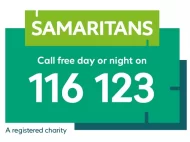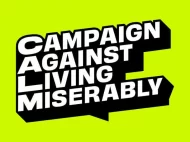Person-Centred Therapy
Person-centred therapy, or client-centred therapy, is a type of psychotherapy that emphasises your subjective experience and your innate capacity for self-awareness and personal growth. It is rooted in the belief you have the answers within. Person-centred therapy enables you to eliminate the idea or feeling that external forces beyond your control influence you. The goals of this practice include increasing self-awareness, self-esteem, and self-acceptance, leading to improved emotional resilience and more meaningful relationships with others.
Person-centred therapy helps facilitate your self-actualisation, allowing you to develop solutions to your problems and reach your full potential. It is a non-directive therapy where you lead the way. There are three main features: genuineness and congruence, unconditional positive regard, and empathetic understanding. I act mainly as a guide or a source of support where you feel heard and understood. You focus on maximising your ability to find solutions during the therapeutic process, which encourages positive change within yourself.
What is EMDR?
Explaining EMDR to Children?
EMDR
(Eye Movement Desensitisation and Reprocessing)
EMDR is a psychotherapy that helps you process and recover from past experiences that are affecting your well-being. It involves using side-to-side eye movements or tapping combined with talk therapy in a specific and structured format. EMDR helps you process the negative images, emotions, beliefs, and body sensations associated with traumatic memories that seem to be stuck.
EMDR helps you see things from a different perspective and relieves the symptoms you are suffering. EMDR is a way of kickstarting your natural healing and recovery process after your trauma. It can be used to help with a range of mental health difficulties, including anxiety, depression, addictions, behavioural challenges, and relationship issues. With EMDR, the change in perspective comes from within, and the transformative changes feel true at a gut level. There can be a remarkable change in how people think, from terror or shame to calmness and empowerment.
Why choose EMDR therapy with Hear For You Counselling, Woking in Surrey?
Our EMDR therapy sessions are available online and in person at our clinic on Victoria Road Knaphill in Woking . Whether you prefer a virtual consultation from the comfort of your own home or a face-to-face session in our welcoming clinic, we are here to help.
What is EMDR therapy?
EMDR is a trauma informed therapy that goes beyond traditional talking therapies. It helps process traumatic memories without requiring clients to share painfull details aloud, making it beneficial for those who find it challenging to discuss their experiences.
Instead, bilateral stimulation –often through tapping or eye movements is used to process the memory and alleviate the trauma related to it. This method is unique and allows multiple traumas to be addressed often in one single EMDR session, with additional sessions recommended for complete healing. EMDR is available through convenience online or in person appointments.
Understanding EMDR therapy: A Powerful Solution for Trauma and Anxiety relief.
The world health organisation reports that 1 in 5 people experience a mental health condition, highlighting a significant need for effective, accessible therapies.
One approach is EMDR (eye movement desensitisation and reprocessing), a highly affective psychotherapy design to relieve the distress associated with traumatic memories associated with traumatic memories. EMDR therapy enables individuals to heal from the symptoms of emotional challenges caused by distressing life experiences.
Who can benefit from EMDR?
EMDR therapy is suitable and safe for individuals experiencing the following:
- Post traumatic stress disorder (PTSD)
- Anxiety disorders
- Depression
- Fears and phobias
- Stress
- Emotional and psychological trauma
- Grief and loss
- Addictions
- Anger management
- Sleep issues
- Low self-esteem and confidence issues
- Chronic pain and illness
- OCD (obsessive compulsive disorder)
- Relationship issues
How EMDR supports natural healing
Very similar to how the body naturally heals physical wounds, the mind to can recover from psychological trauma. EMDR activates the brains healing processes, enabling people to overcome the emotional pain tied to traumatic memories. This solution focused therapy was developed by psychologist Francine Shapiro in 1987. She discovered that specific eye movements could reduce negative emotions linked to trauma. EMDR has now been recognised as one of the most effective treatments for anxiety, depression, phobias, and other mental health challenges, providing rapid results for adults, teens and children alike.
What are the key benefits of EMDR therapy:
Suitable for all ages: effective for adults, teenagers, and children.
Flexible access to therapy: choose between online sessions or in person.
No disclosure necessary: as a non-talking therapy, clients aren’t always required to share traumatic details.
Fast results using EMDR: EMDR often reduces distress in a short time, making it ideal for those needing rapid relief.
ACT
(Acceptance and Commitment Therapy)
ACT therapy is mindful psychotherapy that helps you stay focused on the present moment and accept thoughts and feelings without judgment. It aims to help you move forward through difficult emotions so you can put your energy into healing instead of dwelling on the negative. During ACT therapy, you will develop coping mechanisms specifically designed for your situation, which you can use throughout your life to handle challenging experiences.
ACT therapy works by focusing on accepting life experiences as they come without evaluating or trying to change them. It's a skill developed through mindfulness exercises that encourages you to build a new and more compassionate relationship with difficult experiences. Doing this can free you from obsessive negative thinking so you can have peace of mind and healing.

Acceptance
Start by accepting emotions and feelings that may feel out of your control and mindfully accept the experience.

Direction
Commit to a positive approach that will help push you forward while resisting the temptation to rehash the past.

Action
Take charge and consciously decide to stick with the positive direction you chose. Stay resilient, no matter what life throws at you.
Structure of an ACT Therapy Session

Building rapport
During your first few sessions, you'll sit with me and talk about some of your challenges or struggles. You'll discuss your mental health and talk about things you've tried in the past that may or may not have worked.

Deeper awareness
I will help you identify areas you may have negative thoughts about or hesitate to discuss with others. They can help you work through painful memories while making peace with the things you cannot change.

Core values
During ACT sessions, you will also be encouraged to explore your core values and identify what's important to you. How do you want to identify yourself? What do you want your life to look like?

Actions
After you've identified your recurring thought patterns and what you'd like to prioritise, I will help you start to make a change. This phase emphasises accepting what you can't change while focusing on changing things within your control.

Commitment
I will help you find ways to incorporate it into your everyday life. The purpose is to make a well-thought-out plan so you can continue what you learned in the long run.
CBT
(Cognitive Behavioural Therapy)
The core idea behind CBT is that your thoughts and actions create your emotional states. These emotional states can lead you to feel stuck and unable to move forward. When faced with a difficult situation or having a negative thought, it creates negative feelings and body sensations. These feelings, in turn, push us to make a wrong choice – which, in turn, creates another negative thought – and the cycle continues. You can change your thinking and behaviours with CBT to stop the negative process.
Changing or re-conditioning our thoughts or behaviour can overcome specific problems, and CBT teaches you strategies to manage your mental health daily. CBT helps turn negative thoughts into more helpful thinking patterns for you to act instead of being constrained in avoidance behaviours and negative self-talk. CBT enables you to stop behaving in ways that make you feel bad and improves your problem-solving skills; it widens your perspective and focuses on how your thoughts, beliefs and attitudes affect your feelings and actions.
Mindfulness
Mindfulness aims to reconnect us with the present moment to alleviate stress. It also helps us feel more attuned to our emotions and generally more aware of ourselves mentally and physically. Mindfulness is a specific way of paying attention to what is happening in our lives in the present moment. It has been known and taught for centuries that mindfulness is beneficial for health, well-being, and spiritual fulfilment with positive benefits for depression, anxiety, stress, and many other psychological, and indeed physical, difficulties.
At its simplest, therapy with mindfulness may involve taking a moment together at the beginning of a session to ‘check in’ with our minds, bodies, and emotions before continuing. This can bring attention to our immediate state of being and enhance our awareness of what we bring to the moment and therapy sessions.
Mindfulness Meditation Body Scan Course
Mindfulness Relaxation for Sleep with Visualisation
Mindfulness can expand our awareness and offer opportunities to notice broader and more profound experiences.
The aim of mindfulness in counselling is to help individuals do the following:
Trauma Therapy
Trauma is an intense emotional response caused by an experience that impacts or threatens your mental health, physical body or life. Trauma affects people in many ways. The response to trauma may initially lead to shock and denial, with long-term reactions such as flashbacks, unpredictable emotions or physical symptoms. When a person experiences trauma, it triggers heightened activity in the part of the brain known as the amygdala, which is involved in the regulation of emotions and memory processing. Research shows the amygdala can be slow to recover from high-intensity trauma. Trauma therapy or trauma-focused therapy is a branch of psychotherapy designed to manage the impact of traumatic events by helping you process abusive, dangerous, frightening, or life-threatening experiences.
Other benefits of trauma therapy include:
Get in touch
Feel free to contact me if you have any questions about how I work, or to arrange an initial appointment.
You can also call me on +44 7726 190087 if you would prefer to leave a message or speak to me first. I am happy to discuss any queries or questions you may have prior to arranging an initial appointment.
All enquires are usually answered within 24 hours, and all contact is strictly confidential and uses secure phone and email services.


